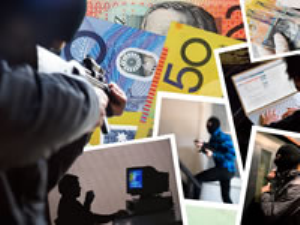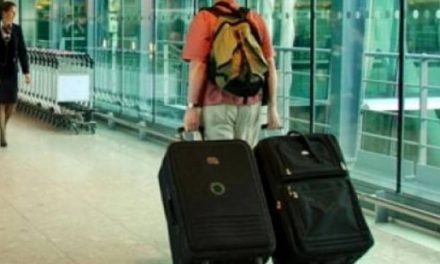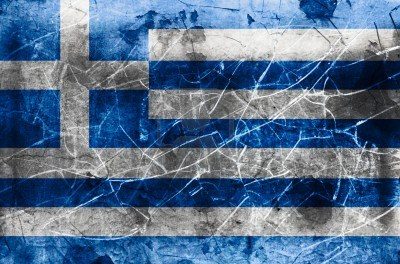By Ioannis Michaletos
One of the most silent wars that take place on a daily basis is the control of myriad banking transactions from the global security and intelligence services in order to combat the terrorists transferring their funds across the planet. While the funding needed for a terrorist act may amount to a small capital, the process of recruitment, training and maintenance of a terrorist group for years requires significant amounts of money.
Because it is increasingly difficult for terrorists to raise funds from charities, collections and donations, they have resorted to money laundering. Terrorists are now working with drug traffickers and other criminals to legitimize the proceeds of crime such as fraud, prostitution, theft of intellectual property and smuggling.
Terrorists use a low value but high volume of illegal act activity to finance their operations. Others, such as paramilitary groups in Northern Ireland and Lebanon, are using legitimate businesses, hotels, bars and taxi operators as money laundering outlets. Worldwide, terrorists take over or control front companies, particularly those associated with large movements of cash.
Further they handle small money transactions through online payment systems like PayPal or through virtual auctions of the eBay.
This is an important difficulty for the security authorities, concerning the transfer of small amounts through electronic payment services since it is practically impossible to investigate such and usually it does not refer to any offense.
Further, for all the above it must be added that the traditional methods such as Hawala for Islamists are a secure way of hiding transaction of funds without the use of the mainstream financial institutions. Charities are still used as means of collecting small amounts from a large number of followers, although a lot have been discovered by the international community between the nexus of terrorism and NGO's.
The 9/11 attacks and the consequent war against terrorism was a milestone in the study of financial flows related to terrorism. The Americans carried out a giant project named «Green Quest» (Or Green search), referring to the search of the funding origin. The operation was launched in October 2001 and has continued with variations until today. Its main design was to classify the main ways by which the amounts are being transferred by terrorists in all financial sectors be it banking institutions, stock market of business-to-business.
It is useful even for law-abiding citizens to know that authorities worldwide have invested in modern technology and software training qualified personnel to detect such cases even if the transactions do not hide illegal activity eventually.
The main suspect behaviors are:
Large remittance inflows or outflows of capital which can not be substantiated-justified (over 15,000 Euros for the EU or 10,000 U.S. dollars)
Placing money in third countries designated with embargo or trade ban or linked to known terrorist groups (i.e. Iran, North Korea, Syria, Sudan, Somalia, Zimbabwe, Burma, Belarus, Sierra Leone, etc.)
"Bizarre" behavior and/or unusual for the client withdrawals or deposits
Using multiple accounts to send money to another account
Influx of small amounts to different accounts and then transfer to another all amounts
"Pulling" of cash from ATMs in suspicious countries or vice versa
Transactions between two parties that can not reasonably be related to one another, a farmer for instance in Pakistan with a jewelry designer in Chile
Transfer of balances to third countries and closure of the account there.
The money transfers between related companies, organizations and clubs without an apparent reason.
These activities ring the first level of alert in order to pursue a second control then.
Should bank customers with such behavior have criminal records or are nationals accused of links with terrorism, then they are placed in observation. The Americans have invented the term "Politically Exposed Person (PEP)" meaning a person who has or had political status at home or is closely linked with a politician.
This means that if for example the heir of a foreign Member of Parliament maintains an account with U.S. bank and is classified in one of the above categories of transactions, then automatically the dealings of the politician's family are also subject to monitoring.
The banks have given great attention to strengthen their security systems so as to avoid state sanctions for mistakes made by employees. They utilize technology such as "link analysis" to check on the second and third level of the transactions of their clients. Thus, if someone sends capital to a friend, the system will periodically check if a friend sends it to someone else and to whom.
Most banks have programs such as "know your customer (KYC)" to check if a customer has any connection to terrorism or organized crime. In this manner, demonstrated by the appropriate analysis, connections can be revealed if there are third parties as mediators when funds are being diverted to terrorists. In fact this is a complete record of transactions and "Who's Who" that resembles close to that of Facebook for social networking.
Finally there are companies such as Lexis Nexis and WorldCompliance that supply banking institutions with highly specialized software that operates with algorithms to identify cases of money laundering and contains databases from around the world with thousands of names of persons and organizations that are considered as of high risk. They are eventually excluded from the banking system who does not accept as customers.
Due to these developments, the terrorist groups are gradually being displaced by the global financial system, and they mutate towards a decentralized structure that tends to self-finance with low-range criminal activities or even with wages from legitimate work like the London bombers in 2005 that were entirely legal concerning their finances.
Many analysts and experts fear that excessive measures that have been implemented since 2001 will turn the terrorists into the shadows of the global economic system and they will eventually invent ways to move along without reducing their operational capabilities. For instance they may decide to carry large sums of money on them or rely more on systems such as Hawala and similar other ones that can be easily formed through personal contacts.
The "global village" has enabled terrorists to acquire a significant number of associates in various locations, a development that eases them from relying in the official institutions for their capital movements.
Furthermore, the current economic crisis will force many banks to relax their controls to ensure cash flow of special need. This coupled with the crucial aspect of the human factor such as employees and businesspersons that do not comply with regulations; may signal a slowdown for the anti-terrorist effort that was described above.
Finally, the regulations against terrorism brought about great changes in the operation of banks and have reduced significantly the confidentiality of transactions and the personal freedom that the average citizen has witnessed for most of the 20th century.
The massive daily capital flows and the creation of many institutions in countries that do not conform to international rules are another two factors that have to be assessed for. It is more than certain that the issue of terrorist financing will grasp the attention of the public in the future and perhaps a new approach is needed by the authorities involved.
Sources:
http://www.cbsnews.com/stories/2001/10/25/attack/main315901.shtml
http://fis.dowjones.com/politically-exposed-person.html
https://www.fidelity.co.in/kyc_notification.html
imf.org/external/np/leg/sem/2002/cdmfl/eng/thony.pdf
http://www.fatf-gafi.org/dataoecd/7/40/34849567.PDF



















